Raincoats - Interview
by John Clarkson
published: 24 / 12 / 2019
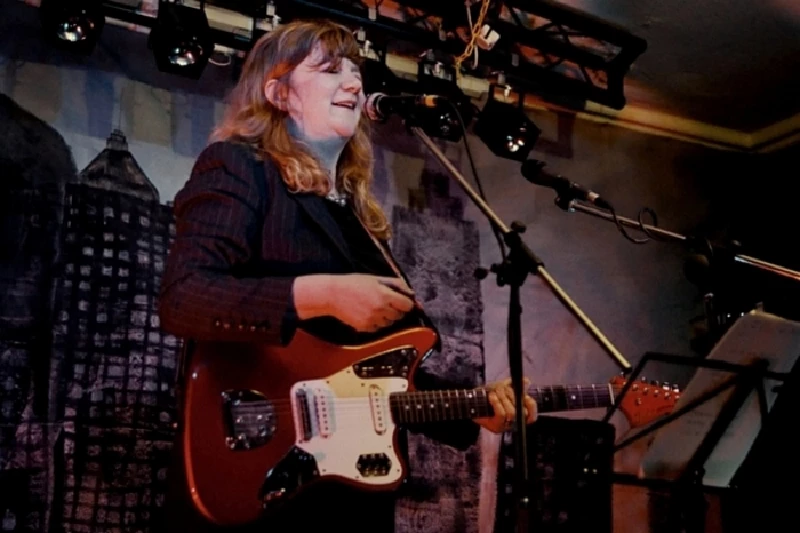
intro
Bassist and vocalist with post-punk band Gina Birch talks to John Clarkson about the 40th Anniversary vinyl reissue of their classic self-titled debut album.
“It did seem quite funny to make a gold album,” laughs The Raincoats’ bassist and vocalist Gina Birch. “I put up on social media that we had a gold album, and people did really think that we had won one of those award things. We have just made an album though which is on gold vinyl.” She is talking to Pennyblackmusic about The Raincoats’ 1979 eponymous debut album, which has just been released in a limited-to-1,000 copies vinyl only 40th Anniversary edition, and which includes art prints from both herself and the group’s other original member, Portugese-born guitarist and vocalist Ana da Silva. “I think it might be called commerce,” she half-jokes. “Forty years seemed to be a bit of a landmark and people seemed to really want to get it.” ‘The Raincoats’ had little impact at the time outside small club punk and post-punk circles, the all female group’s crude, deliberate amateurism and skewed guitar lines proving too off-kilter and ragged in sound for the bulk of the late 70’s/early 80’s record-buying public. The Raincoats broke up in 1984 after releasing two other albums, ‘Odyshape’ (1981) and ‘Moving’ (1984). Both these records found them growing in musical confidence and experimenting with a wide array of styles including dub, free jazz and African polyrhythms, but again had no mainstream impact. The group, however, began to be seen as increasingly seminal when Nirvana’s Kurt Cobain cited them as one of his favourite bands and on a visit to London in 1992 sought out da Silva where she was working at her cousin’s antique shop to buy from her 'The Raincoats' to replace his worn-out copy of it. The Raincoats reformed in 1994 and were booked to tour Europe that year with Nirvana, but the tour was cancelled the week before it was due to begin after Cobain’s suicide. Birch and da Silva have, however, carried on, working with various line-ups and releasing the last Raincoats album to date, ‘Looking in the Shadows’ in 1996, as well as reuniting for occasional shows. The Raincoats were formed in 1977 in London by Birch, who is originally from Nottingham, and da Silva, who is from Madeira, after they had both moved there to attend art college. They were inspired to start the Raincoats after seeing an early gig by the Slits. Ana da Silva had also recently seen Patti Smith on one of her early tours of the UK. “Ana had come from Portugal where there had been a revolution, and prior to the revolution it had been really oppressive, what films you could see, how you behaved,” reflects Birch. “Everything was really controlled, so obviously when she left Portugal and got to London everything seemed very, very free to her.” “I had gone to an all girls’ secondary school in Nottingham, and been to a Catholic primary school where I had been taught by nuns,” she says about her own background. “Women tended to play quite a big role in my life, although in my day to day life my father was the kind of patriarch in the house. I had no illusions that women had any power. Even if women are well-educated, it doesn’t necessarily give them any power to do anything more. You get this education, but it is probable that when you leave education that the world is not welcoming girls as perhaps school might have led you to believe.” “I was aware of the punk scene in London and that seemed very exciting,” She reflects. “And I had chanced on the Sex Pistols’ first gig when I had come to London with my friend Ali on a visit the year before, so I was aware that something was happening even before I moved to London in September ’76. I missed the Patti Smith gig that Ana had been to. Ana had been very taken and moved by Patti Smith, but seeing Patti Smith did not make her want to form a band. She was simply in awe of Patti Smith. It was the bands that played in a more chaotic way, like the Pistols and Slits that really made us feel like we could do it. The Slits seemed so wild and free when we saw them, and they were women, which was a big plus.” “That might have been a slight exaggeration,” she says when asked the truth of a story that The Raincoats played their first gig two weeks after they first formed. “But it was only a few weeks. After seeing the Slits, I really wanted to form a band, but I couldn’t play an instrument and that was when I bought a bass guitar. Ana had been in Madeira on holiday but when she had come back after the summer someone had told her that I had bought the bass, so we immediately got together. Ana got a guitar and we started playing together. We had written one and a half songs when Richard Dudanski, who had been the drummer in the 101ers, Joe Strummer’s band before The Clash and who lived in the squat next door to me, heard that we had a band and he said, ‘I am playing at the Tabernacle next week with Tymon Dogg. Will you play with us and be our support act?’ And we went, ‘No we can’t. We don’t know what we are doing,’ and he said, ‘You can. You can,’ and he really encouraged us, so we frantically wrote a few more songs and played the show. It was two months most likely at the outside, but it wasn’t like we were focused on that wholly. It was a bit of a leap in the dark really.” Birch, however, believes that their amateurism gave the Raincoats a freedom and a lack of constraint, which would not have existed if they had gone through more traditional channels of learning their instruments. “If you can make a little tune on the instrument then you think, ‘I can do this.’ I was more interested in trying to make little melodies rather than trying to write bass lines. I saw the bass as more like a sing-a-long melody kind of thing. I didn’t think, ‘I am playing bass lines’. It made me think I was playing melody.” The Raincoats also stood out by their ordinariness. At a time in which there were barely any other all female groups, and those other women in bands were ultra-glamorous or male fantasy figures including punk icons such as Siouxsie Sioux or Debbie Harry, The Raincoats dressed down on stage and as they would in the street or in their squats. "That was partly down to shyness," Birch admits. "We, however wanted our audiences to see us as how we really were." After various early line-up changes, The Raincoats formed its classic line-up, which, as well as Birch and da Silva, also included ex-Slits drummer Palmolive and classically-trained violinist Vicky Aspinall. 'The Raincoats' album, which was minimally co-produced by the band with The Red Krayola's Mayo Thompson, was scruffy and unpolished in sound. The Raincoats, however, worked their amateurism to their benefit, combining their shambling, discordant guitars and other instrumentation with quirky, offbeat rhythms and an unorthodox but strong sense of melody. "It was done very quickly," recollects Birch about the album. "We recorded it in Berry Street Studio in London over a two or three week period. We had just got back from a tour, and we recorded the songs pretty much as we had played them on the tour. We did very few overdubs, but the mixing was interesting because in the mixing you can perhaps take things out as well as bring in instruments when you hear different combinations. On the opening track ‘No Side to Fall In’, for example, we brought an a cappella on the second half. We also changed the words on ‘Life on the Line.’ It was recorded very fast so it captured a moment, which I always felt was really good." "I thought that was the sad thing about the Slits," she adds, talking about their debut album 'Cut', which came out in September 1979, just a few weeks before 'The Raincoats' in November, and over three years after the Slits formed. "It is a great record, but it took so long for them to record and to come out that it feels like a second album. Ours definitely feels like a first album. It captures the intensity of the moment." The lyrics were often hard-hitting and punchy.'Life on the Line' was about the suicide of a friend of a friend, who had thrown himself in front of a train at Ladbroke Grove underground station. 'Off Duty Trip', with its chorus line of "join the professionals", meanwhile told of a rapist who had been given a lenient sentence by a judge so that it would not damage his military career. "That was based on a story in the newspapers that attracted a lot of attention at the time, " recollects Birch. "I think that song is timeless really. Unfortunately stuff like that still goes on." Perhaps most controversial of all was an ironic cover of The Kinks' 'Lola', which put a twist on gender issues and Ray Davies' tale of an innocent young man being seduced by a transvestite by being sung by women. "Ray Davies apparently said when he was asked about our version that he preferred someone to take an album track of his such as Chrissie Hynde and make it a hit," she laughs, "rather than taking a hit and making it an album track. I have no idea of what he made of our version though." Both Gina Birch and Ana da Silva have busy other careers, Birch as a figurative painter and independent filmmaker, while da Silva is also an artist. They will be bringing The Raincoats out of hibernation to promote the 40th Anniversary vinyl LP with five live shows, one at Le Guess Who?, an arts festival in Utrecht on November 8th, and then four UK shows, London on November 10th, Brighton on the 13th, Manchester on the 15th and Glasgow on the 16th. "We will play the album in its entirety,and a couple of our other songs in the encore if we get one," concludes Birch. While its musicians have become more sophisticated, 'The Raincoats' remains a magical classic.
Band Links:-
http://www.theraincoats.net/https://www.facebook.com/theraincoats.net/
https://twitter.com/raincoatsthe
https://en.wikipedia.org/wiki/The_Raincoats
Picture Gallery:-
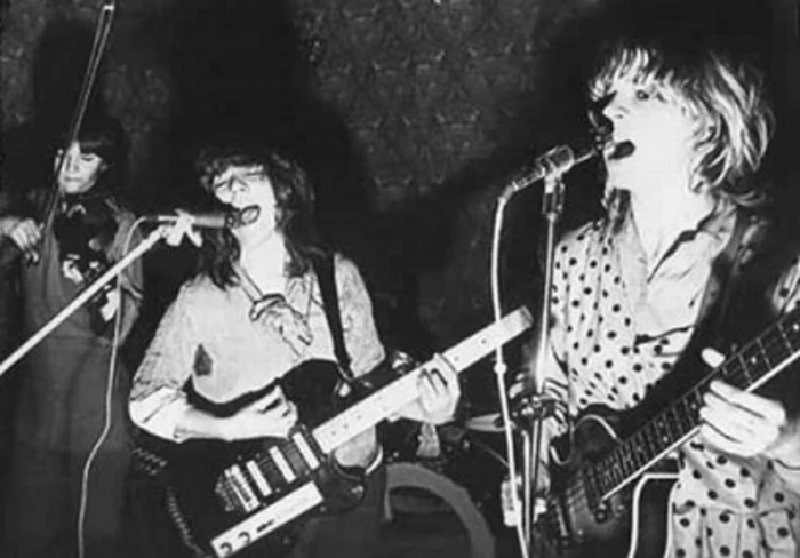
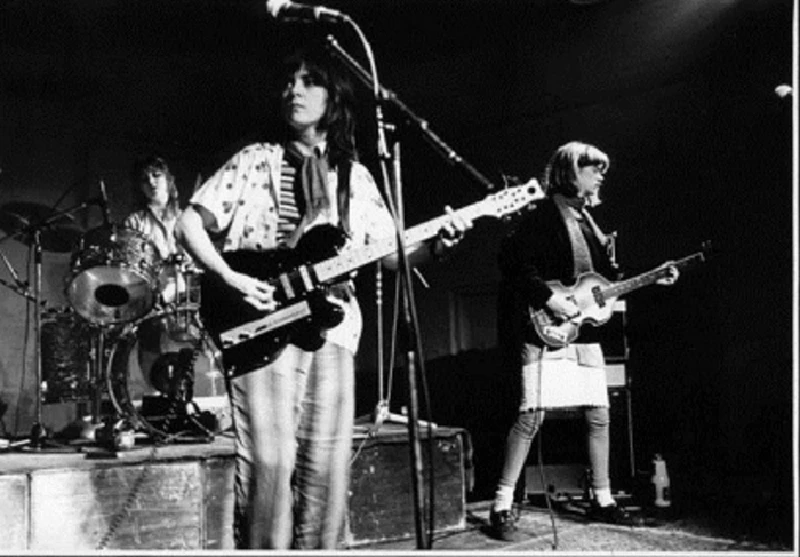
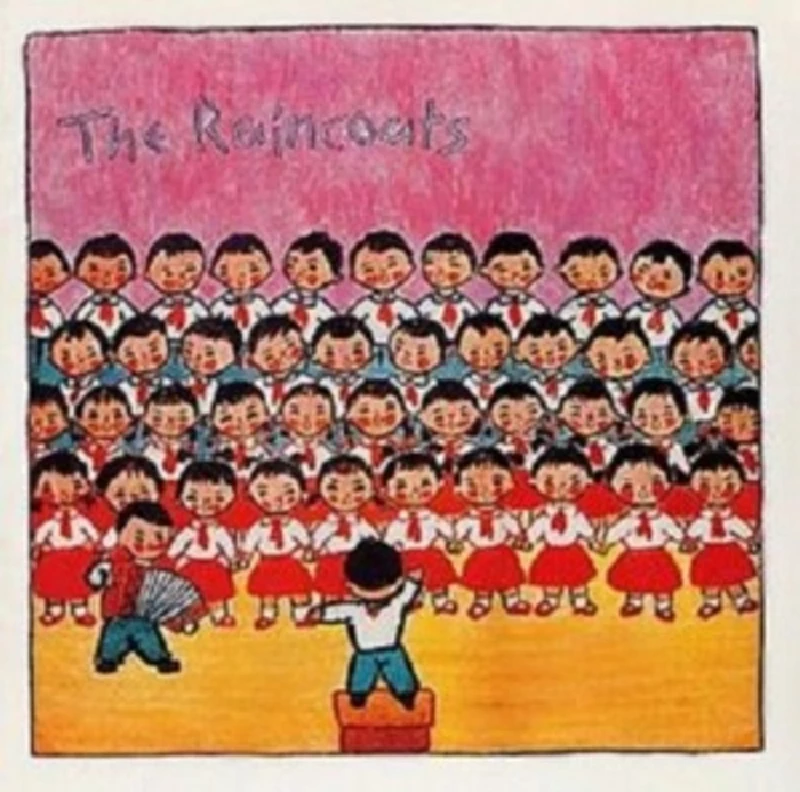
favourite album |
|
Odyshape (2011) |
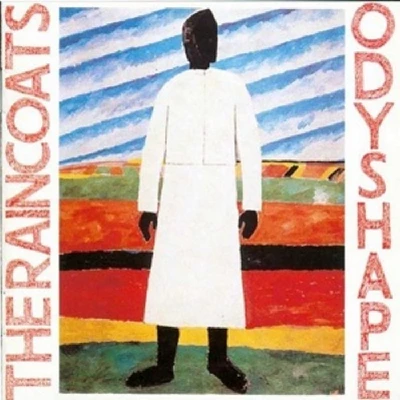
|
| In our 'Re:View' section', in which our writers look back at albums from the past, Jon Rogers' reflects upon female post-punk outfit the Raincoats' 1981 experimental second album, 'Odyshape', which has recently been re-released |
| Raincoats (2009) |
most viewed articles
current edition
Carl Ewens - David Bowie 1964 to 1982 On Track: Every Album, Every SongArmory Show - Interview with Richard Jobson
Colin Blunstone - Thalia Hall, Chicago, 16/7/2025
Bathers - Photoscapes 1
Visor Fest - Valencia, Spain, 26/9/2025...27/9/2025
John McKay - Interview
Billie Eilish - O2 Arena, London, 10/7/2025
Robert Forster - Interview
Sir Tim Rice - Interview
Loft - Interview
previous editions
Heavenly - P.U.N.K. Girl EPManic Street Preachers - (Gig of a Lifetime) Millennium Stadium, Cardiff, December 1999
Beautiful South - Ten Songs That Made Me Love...
Pixies - Ten Songs That Made Me Love...
Oasis - Oasis, Earl's Court, London, 1995
Paul Clerehugh - Interview
Trudie Myerscough-Harris - Interview
Prolapse - Interview
Doris Brendel - Interview
Peter Perrett - In Dreams Begin Responsibilities Interview Part One
most viewed reviews
current edition
Phew, Erika Kobayashi,, Dieter Moebius - Radium GirlsAmy Macdonald - Is This What You've Been Waiting For?
Sick Man of Europe - The Sick Man of Europe
Alice Cooper - The Revenge of Alice Cooper
Davey Woodward - Mumbo in the Jumbo
Blueboy - 2
Cynthia Erivo - I Forgive You
Lucy Spraggan - Other Sides of the Moon
Bush - I Beat Loneliness
Suzanne Vega - Flying With Angels
Pennyblackmusic Regular Contributors
Adrian Janes
Amanda J. Window
Andrew Twambley
Anthony Dhanendran
Benjamin Howarth
Cila Warncke
Daniel Cressey
Darren Aston
Dastardly
Dave Goodwin
Denzil Watson
Dominic B. Simpson
Eoghan Lyng
Fiona Hutchings
Harry Sherriff
Helen Tipping
Jamie Rowland
John Clarkson
Julie Cruickshank
Kimberly Bright
Lisa Torem
Maarten Schiethart